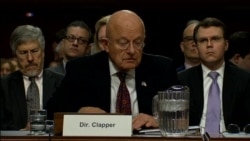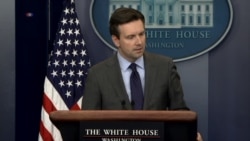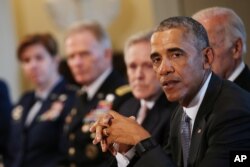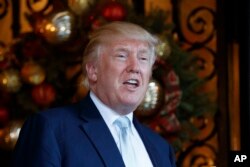Top U.S. intelligence officials say they believe high-level Russian authorities were directly responsible for the hacking and leaking of documents from the Democratic National Committee in an effort to interfere in the 2016 presidential election.
"We assess that only Russia's senior-most officials could have authorized the recent election-focused data thefts and disclosures," Director of National Intelligence James Clapper, National Security Agency chief Michael Rogers and Undersecretary of Defense for Intelligence Marcel Lettre said in prepared opening remarks for their testimony Thursday before the Senate Armed Services Committee.
They called Russian cyberattacks a "major threat" to national interests.
WATCH: Clapper on Russia hacking
While the intelligence chiefs agreed that Russia was involved in hacking the DNC documents, Clapper noted that the intelligence community “can’t gauge” any effect the information released by WikiLeaks might have had on citizens’ choices in the voting booth.
“They did not change any vote tallies or anything like that,” he said.
White House spokesman Josh Earnest reiterated that point Thursday in a press briefing, adding that the "hack-and-leak" strategy did have a negative impact on Democrat Hillary Clinton's campaign.
“I think that’s something people will be assessing for quite some time,” he said.
WATCH: Earnest Discusses Election Hacking
Clapper went on to say that China also has successfully conducted cyber espionage against the U.S. government recently, though China’s attempts to hack the U.S. have waned since the two countries signed a bilateral agreement to limit espionage in 2015.
Obama ordered review
President Barack Obama ordered the intelligence community to review potential foreign interference dating back to the 2008 election that first brought him to the White House.
Clapper said Obama heard the results of the probe Thursday, and that President-elect Donald Trump will get the same briefing Friday.
Clapper also said the full report will be given to lawmakers next week and a redacted version of the report will be made public shortly after.
The Central Intelligence Agency and the Federal Bureau of Investigation have both concluded that the Russian government was behind the 2016 hacking, and intentionally divulged the documents via WikiLeaks to disrupt the election.
In his opening remarks before the Senate hearing Thursday, committee chairman John McCain said "every American should be alarmed" by Russia's actions. He said "Congress must set partisanship aside" in probing and preventing cyberattacks on America.
WATCH: McCain on Russia hacking
A Senate Foreign Relations Committee closed-door hearing later Thursday will feature Homeland Security cybersecurity official Danny Toler and State Department officials Victoria Nuland and Gentry Smith.
Obama responded to Russia last week with a set of sanctions targeting the country's leading spy agencies and the expulsion of 35 "intelligence operatives."
Clapper, however, cast doubt on the effectiveness of deterrence efforts when it comes to cyberattacks because cyber actions can’t easily be seen by enemies like a physical weapon build-up.
It is hard, Clapper said, to create the “substance and psychology of deterrence” because there are no physical weapons for an enemy to see and assess danger.
Trump on hacking
Trump has repeatedly expressed doubt that Russia meddled in the vote, though he appeared to backtrack slightly Thursday morning, tweeting that he is a “big fan” of US intelligence while taking a swipe at the “dishonest media” for misrepresenting his views.
“The dishonest media likes saying that I am in Agreement with Julian Assange - wrong. I simply state what he states, it is for the people to make up their own minds as to the truth. The media lies to make it look like I am against "Intelligence" when in fact I am a big fan!” Trump said in back-to-back tweets.
Clapper, during Thursday’s hearing, said he does not believe Assange is a credible source, noting that the WikiLeaks founder has, in the past, put the lives of U.S. intelligence operatives at risk.
“I don’t think those of us in the intelligence community have a whole lot of respect for him,” said Clapper.
U.S. Senate Correspondent Michael Bowman and National Security Correspondent Jeff Seldin contributed to this story.










